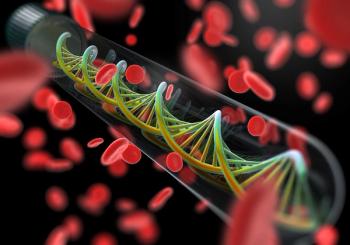
Taking a BiTE Out of ALL by Targeting CD19
One of the confounding issues with treating patients with immunotherapy for hematologic diseases is the risk of relapse that can occur during and after treatment.
One of the confounding issues with treating patients with immunotherapy for hematologic diseases is the risk of relapse that can occur during and after treatment. Researchers from Hubertus Wald Tumorzentrum/University Cancer Center Hamburg, University Medical Center Hamburg-Eppendorf, Hamburg, Germany, tried a new targeted therapy to treat the 10% to 20% of patients with acute lymphoblastic leukemia (ALL) that experience relapse.
Braig, Brandt, Goebeler, et al., analyzed four CD19-negative ALL relapses after treatment with the CD19/CD3 bispecific T-cell engager (BiTE) blinatumomab, the results of which were first
Three relapses occurred during treatment, with the CD19-negative escape variant first detected after two treatment courses. In one patient, the CD19-negative clone appeared more than a year (19 months) after completion of blinatumomab treatment. A thorough molecular workup of one of the cases with early relapse confirmed this hypothesis by revealing a disrupted CD19 membrane export in the post-endoplasmic reticulum compartment as molecular basis for blinatumomab resistance. All four cases showed a cellular phenotype identical to the primary diagnosis except for CD19 negativity.
The research team concluded that CD19
Further research with more patients with the same type of leukemia may reveal more of the efficacy and safety of BiTE to mitigate this issue of resistance.
Approximately 6,590 people of all ages (3,590 men and boys and 3,000 women and girls) in the United States will be diagnosed with ALL this year, according to
Newsletter
Stay up to date on recent advances in the multidisciplinary approach to cancer.





































